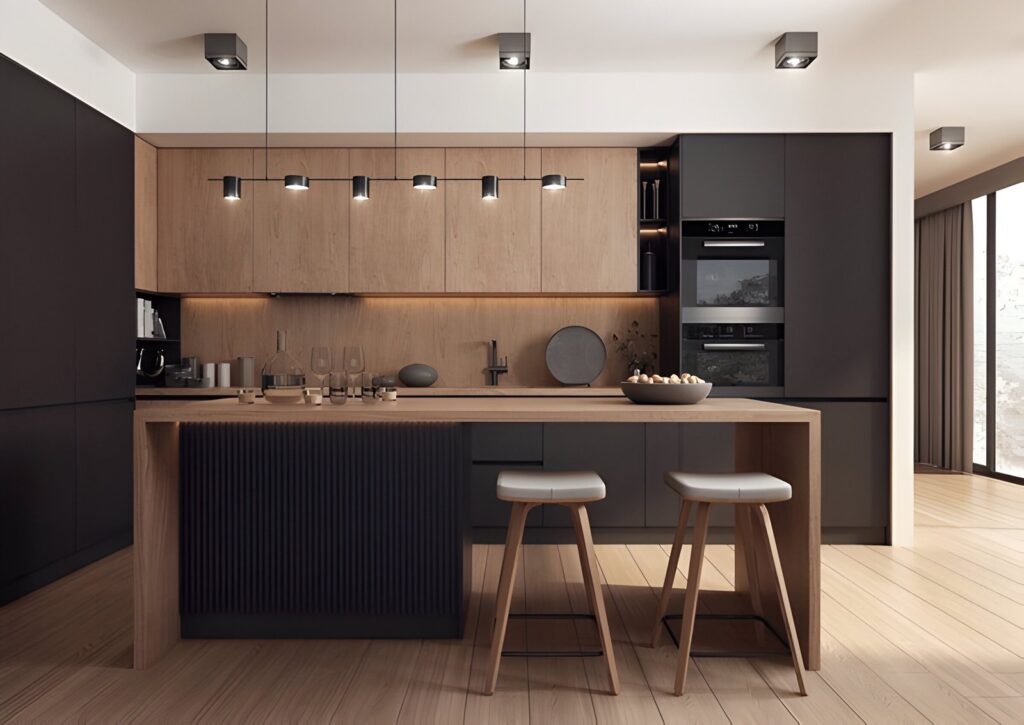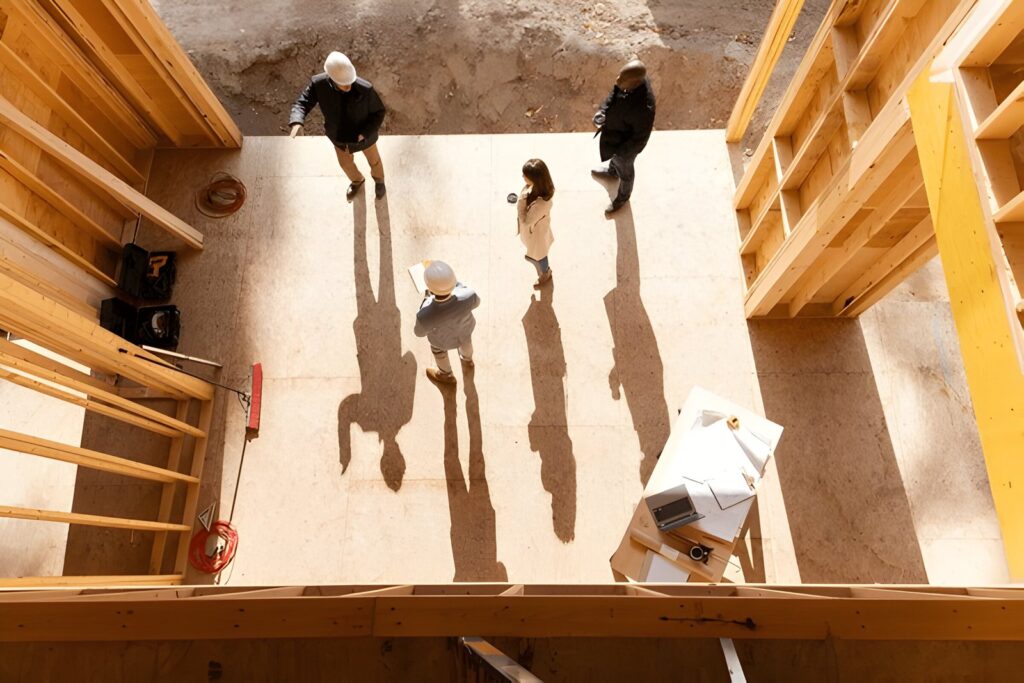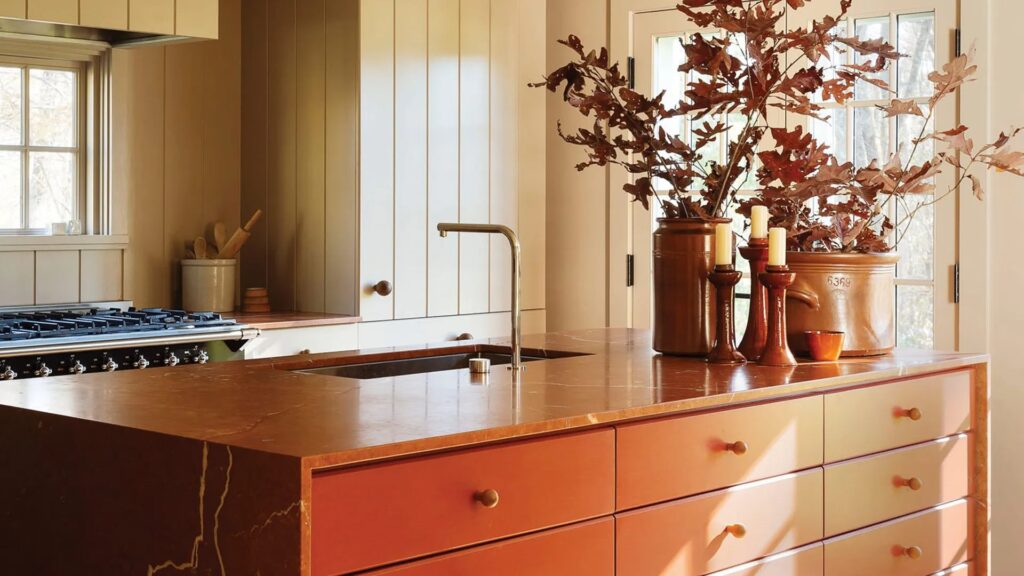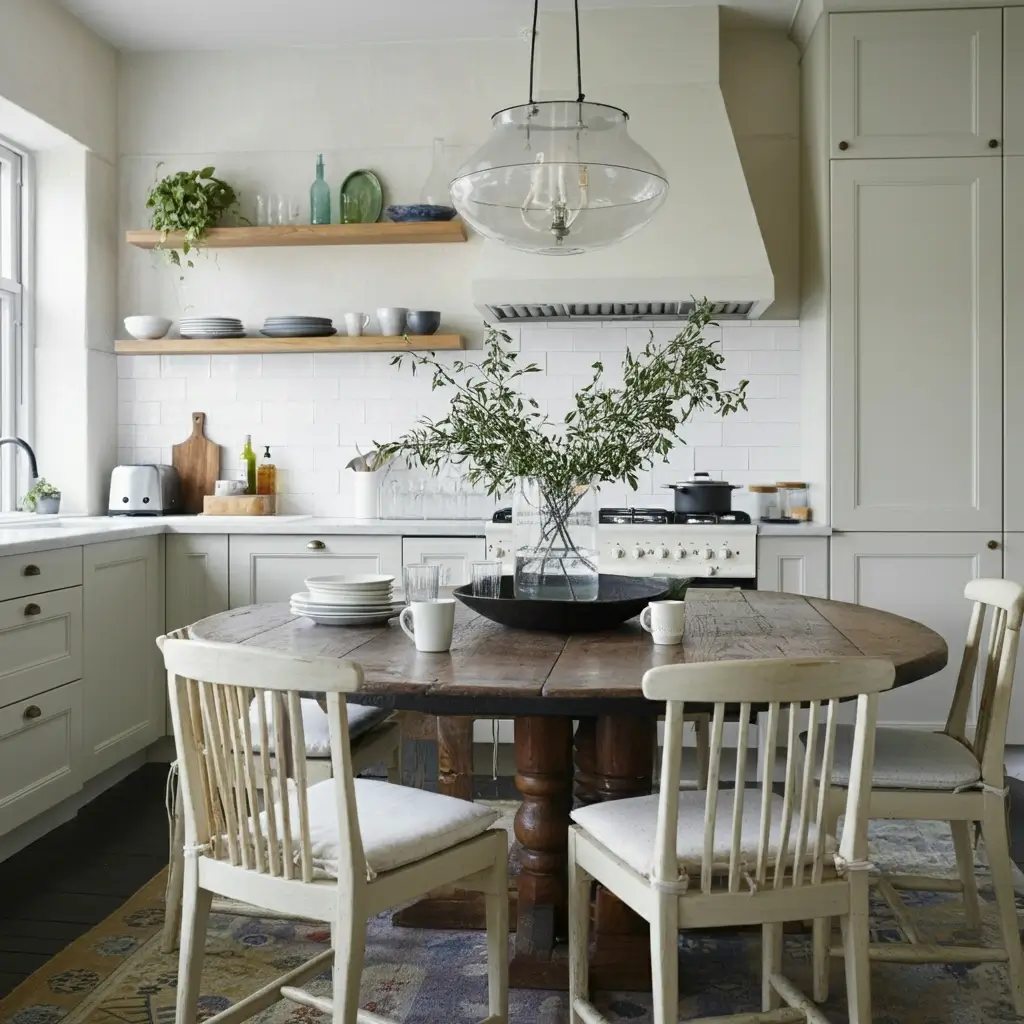
1. Introduction: Why Understanding the Average Kitchen Remodel Cost is Crucial
Planning a kitchen renovation is an exciting process, but it’s essential to be aware of the average kitchen remodel cost to ensure your project stays on track. Without a clear understanding of potential expenses, your dream kitchen could end up costing far more than expected.
Knowing the cost up front allows you to make informed decisions, prioritize the most impactful updates, and avoid unnecessary stress as you go through the renovation.
Budgeting for a remodel isn’t just about cost control—it’s also about achieving a balance between functionality and aesthetics. With careful planning, you can create a kitchen that reflects your vision without breaking the bank.
Whether you’re tackling a small update or a full remodel, understanding costs ensures you’re investing wisely in your home while staying aligned with your financial goals. This knowledge is crucial for avoiding budget surprises and creating a beautiful, functional space you’ll love for years.
2. National House Renovation Cost Averages for Kitchens
The national house renovation cost for kitchens ranges significantly, depending on the project’s scope. For a minor remodel, expect to spend between $13,000 and $20,000, which typically covers updates like cabinet refacing and new countertops. A mid-range remodel can cost between $20,000 and $60,000, often including upgraded appliances, new cabinets, and updated flooring. Major, upscale renovations can exceed $150,000, involving high-end materials and a complete kitchen reconfiguration.
Several factors contribute to these costs, including the size of your kitchen, the complexity of the project, and the materials you choose. A larger kitchen naturally increases the expense, while premium materials like marble or custom cabinetry add to the total.
Additionally, regional differences in labor costs and materials can influence the price of a remodel, with areas like the Pacific region seeing higher averages. Knowing these figures helps you plan realistically and ensures you get the most out of your renovation investment.

3. Types of Kitchen Remodels and Their Cost Ranges
Minor Remodels typically fall between $13,000 and $20,000, making them an affordable choice for homeowners looking to refresh their kitchens without a complete overhaul. These remodels often involve updating countertops, repainting cabinets, and installing new appliances. While modest in scope, minor remodels can still dramatically improve the look and function of your kitchen, particularly for those working within a limited budget.
Mid-range Remodels offer a more comprehensive upgrade, ranging from $20,000 to $60,000. This type of remodel may include replacing cabinetry, upgrading countertops to premium materials, and installing new flooring or lighting. Homeowners opting for this level of renovation often seek a balance between quality and cost, ensuring that the updates will last for years to come while still remaining affordable.
Major Remodels, exceeding $40,000 and reaching upwards of $150,000 for upscale projects, are the most extensive. These renovations involve tearing down walls, installing custom cabinetry, high-end appliances, and luxury materials like quartz countertops. Major remodels are ideal for homeowners looking to completely transform their kitchen into a high-end, custom space.

4. Regional Variations in Kitchen House Renovation Price
Kitchen house renovation costs vary significantly based on geographic location, with the Pacific and South Atlantic regions being prime examples. In the Pacific region—encompassing states like California, Washington, and Oregon—the cost of a midrange kitchen remodel averages around $80,900, while upscale remodels can skyrocket to $161,800. The high demand for premium materials and labor in this area often drives these prices.
In contrast, the South Atlantic region, which includes states like Florida and Georgia, sees more moderate prices. A midrange kitchen remodel in this region typically costs around $77,800, with upscale projects averaging $152,700. This regional variation highlights how location significantly impacts the average cost to remodel a house, driven by factors like labor rates, availability of materials, and overall market demand. Understanding these cost differences allows homeowners to budget more accurately depending on their location.5. Breakdown of House Renovation Costs in a Kitchen Remodel
When undertaking a kitchen remodel, it’s essential to understand where your budget will be allocated. On average, cabinets are the most significant expense, often accounting for about 30-40% of the total kitchen remodel cost. Cabinets can cost roughly $8,400, depending on the materials and customization involved. Appliances also make up a substantial portion of the cost, averaging around $4,500. For a cohesive and stylish kitchen, quality countertops and backsplashes will require around $3,300, depending on the materials used, with options like granite or quartz often on the higher end.
Labor and installation come in next at around $5,400, while flooring, which varies depending on material, usually costs $2,100 on average. Lighting, painting and drywall, plumbing, and other elements, such as doors and windows, contribute further to the final price tag. For a more detailed breakdown, homeowners should consider smaller components like lighting ($1,500) and design ($900), as they also influence the overall kitchen remodel price.
6. Key Factors Affecting the Average Cost to Renovate a Kitchen
Several critical factors influence the average cost to renovate a kitchen, with the size of the kitchen being a top determinant. A larger kitchen will naturally incur higher costs due to the need for more materials and labor. Additionally, materials like cabinetry, countertops, and appliances play a significant role in determining overall expense. Opting for high-end materials like custom cabinetry or granite countertops will raise the budget, while more budget-friendly alternatives can help keep costs in check.

Layout changes are another major factor that can increase the final price. Altering the kitchen’s layout requires additional plumbing, electrical work, and structural modifications, making these projects more complex and costly. Labor costs also vary depending on your location, with some regions demanding higher rates. For example, labor in urban areas may be more expensive, which in turn raises the average kitchen reno cost. Being mindful of these factors and balancing your needs and wants can help you plan a renovation that fits your budget.7. Cost-Saving Tips for Staying Within Budget
Keeping the full house renovation cost within budget doesn’t mean sacrificing quality. One effective strategy is repurposing existing materials, such as refacing or repainting cabinets instead of replacing them. Choosing budget-friendly materials, like laminate countertops or vinyl flooring, can significantly reduce expenses while still providing a stylish finish. DIY work, where feasible, also cuts labor costs.
To manage the average kitchen remodel price, prioritize key elements like appliances and lighting, and keep the existing kitchen layout to avoid costly plumbing and electrical modifications. Quality can still be maintained with mid-range materials and smart design choices, ensuring that your remodel is both functional and visually appealing.
8. Return on Investment: What to Expect
A kitchen remodel offers a substantial return on investment (ROI), particularly when preparing to sell a home. On average, homeowners can recoup around 60-80% of their renovation costs. To avoid over-investing, it’s advised to spend 5-15% of your home’s value on a kitchen remodel, ensuring that the expense aligns with the overall property value. This approach keeps the renovation budget proportional and maximizes resale appeal.
Strategic investments, such as upgraded appliances and countertops, tend to boost home value and attract buyers, making the project worthwhile in the long term. Careful budgeting ensures that your remodel is a smart financial move rather than an overextension.9. Conclusion: Planning a Budget-Friendly Kitchen Remodel
Understanding house renovation costs is the key to achieving a successful kitchen remodel on a budget. By breaking down expenses, exploring cost-saving strategies, and focusing on smart design choices, homeowners can create a functional and beautiful kitchen without overspending. Whether it’s repurposing materials or making selective upgrades, it’s possible to keep the home renovation cost within limits while maximizing impact.
FAQ for a Budget-Friendly Kitchen Remodel
- What is the average kitchen remodel cost? The average kitchen remodel cost varies widely, typically ranging from $14,600 to $41,400. This depends on the scope of the project, materials, and location. Minor remodels may cost between $13,000 and $20,000, while upscale projects can exceed $150,000.
- How can I reduce my kitchen renovation costs? Cost-saving tips include repurposing existing cabinets, choosing budget-friendly materials, and sticking to the current layout to avoid expensive plumbing or electrical changes.
- What are the biggest expenses in a kitchen remodel? Cabinets, appliances, and labor are usually the most significant expenses, with cabinets alone costing around $8,400. Other major elements include countertops, flooring, and lighting.
- Does kitchen size affect renovation costs? Yes, larger kitchens generally require more materials and labor, increasing overall costs. However, small kitchens can still have high costs if upscale materials or appliances are chosen.
- What’s a reasonable budget for a kitchen remodel? Experts recommend spending 5-15% of your home’s value on a kitchen remodel to avoid over-investing, especially if you plan to sell your home within the next few years.
Feel free to leave your renovation stories and questions in the comments below!



